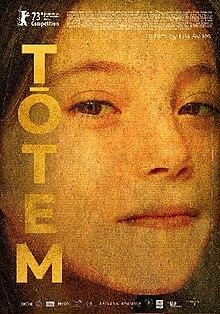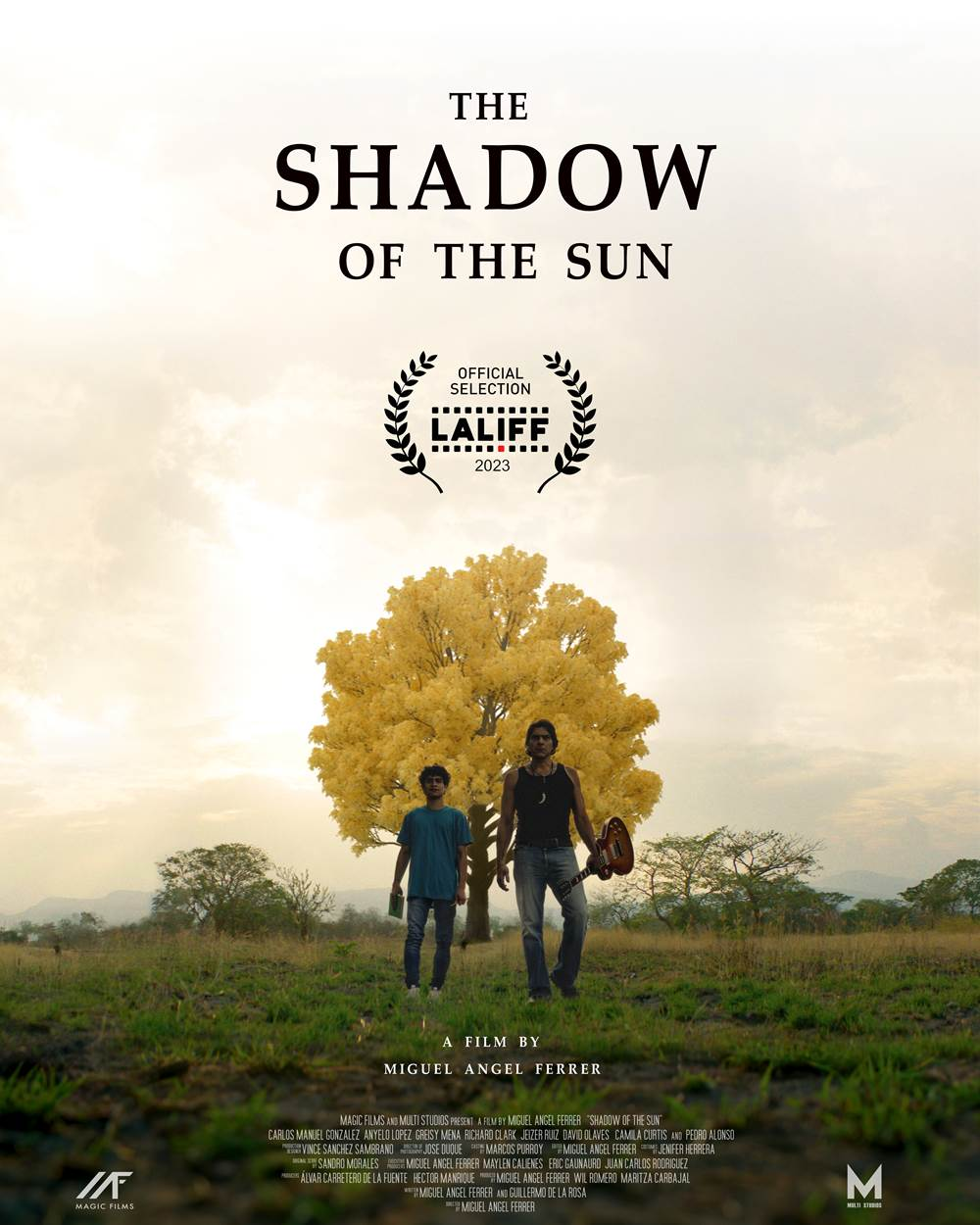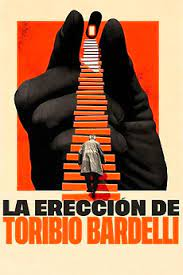And here are my assessments for Group 2.....the 15 films from the Americas. I've seen seven so far (over 40%) and am looking everywhere for "Cuarencena"!
Number of Countries Participating this year: 15, one less
than last year.
Number of Countries That Have Participated in the
Past: 22
Who’s Missing?: Of the seven missing countries, only ECUADOR was a major surprise. They’ve submitted nine of the past ten years and entered the Goyas with “Octopus Skin” which I expected would also go to the Oscars. Ecuador formed a new Film Academy this year and reported that they didn’t have time to get an Oscar Selection Committee approved by AMPAS. They promised to return next year.
PUERTO RICO is no longer invited to participate in this competition, thanks to a ridiculous 2010 rule by AMPAS. Interestingly, this year Puerto Rico was invited to compete in the Goya’s “Ibero-American Film” category for the first time and they got a Goya nomination, showing the quality of their local film industry.
Also missing: GUATEMALA, which submitted two of the past three years and did have some eligible films; not sure what happened there. The other four have only ever submitted once (Suriname), twice (Haiti) or three times (Honduras and Nicaragua).
FRONTRUNNERS:
1. ![]() MEXICO- “Totem” (Letterboxd: 3.8)
MEXICO- “Totem” (Letterboxd: 3.8)
2. ![]() ARGENTINA- “The Delinquents” (Los delincuentes) (3.5)
ARGENTINA- “The Delinquents” (Los delincuentes) (3.5)
I’m not certain that any Latin American films will make the shortlist this year. Last year they got two slots (Argentina and Mexico) and these same two countries, which have earned more Oscar nominations than all other Latin American countries combined- are the two frontrunners this year. MEXICO has been shortlisted four of the past five years (including “Roma”, which won the Oscar). The only film that failed to advance – “The Chambermaid” – was the best film of the five…and was directed by Lila Aviles, the director of this year’s “Totem”. So, I fear Oscar may not like her quietly sad character studies. “Totem” arguably has better reviews than “Chambermaid” (I haven’t seen “Totem” yet) and focuses on a 7-year old girl at a family celebration. It’s been mentioned enough as a contender that people will watch their screeners…but ultimately will probably be on the bubble.
From Argentina, “The Delinquents” won out against strong internal
competition. Many people find it to be a crowd-pleasing and original heist comedy. It’s
currently in U.S. cinemas, which will help the film a lot. The three-hour running
time is a potential obstacle…but Oscar isn’t usually averse to considering long movies. There’s
usually at least one light film on the shortlist (last year was “Bardo”) and
this could very well be the choice for 2024. So, I saw the film last night....The film could easily out 40 minutes of its running time....It's simply too long. And while I don't want to give away any spoilers, the film somehow manages to end abruptly and unsatisfactorily, which is unforgivable considering we in the audience spent over three hours waiting for a resolution. Still....it will come close to the shortlist.
DARK HORSES:
These
four countries are praying for a miracle.
3. ![]() VENEZUELA-
“Shadow of the Sun” (3.2)
VENEZUELA-
“Shadow of the Sun” (3.2)
In A Nutshell: A deaf man encourages his brother to enter
a music contest
Pros: A lot of websites that have reviewed 80 or
90 of these films cite Venezuela’s film as one of the most pleasant surprises. Riding
on the coattails of Oscar winner “CODA”, it is said to a strong mix of comedy, music,
sentimentality and good old-fashioned family drama.
Cons: No buzz. Nobody has heard of it.
4. ![]() BRAZIL- “Pictures of Ghosts” (3.9)
BRAZIL- “Pictures of Ghosts” (3.9)
In A Nutshell: Director Kleber Mendonça Filho details the
lost tradition of old-school cinemas in his hometown of Recife.
Pros: This documentary seems to be catnip to
filmmakers….who make up the bulk o AMPAS voters. It’s an homage to cinema and
to the influences of many middle-aged and older filmmakers (Mendonca is 55).
Cons: Documentaries struggle in this category and the film is very niche.
5. ![]() CHILE-
“The Settlers” (Los
colonos) (3.6)
CHILE-
“The Settlers” (Los
colonos) (3.6)
In A
Nutshell: Set in 1893, it’s a western featuring an American and
Briton whose expeditions (alongside a Chilean interpreter) lead to genocide of
Chile’s indigenous people.
Pros: Generally
strong reviews. Oscar likes period pieces and films with a healthy dose of
English dialogue.
Cons: It’s said to be very cold, bleak and hard to “enjoy”. I thought the film would be disqualified for containing too much English…
6. ![]() DOMINICAN
REPUBLIC- “Cuarencena” (3.9)
DOMINICAN
REPUBLIC- “Cuarencena” (3.9)
In A
Nutshell: Secrets are revealed when a group of close friends have a
secret dinner during a COVID lockdown.
Pros: Those
who have seen it say it’s one of the most entertaining films in the group.
Cons: No buzz. Oscar generally dislikes comedies. This is not to sort of film that’s usually honored here.
MIDDLE OF THE PACK:
8. ![]() COSTA RICA- “I Have Electric Dreams” (Tengo
sueños eléctricos) (3.5)
COSTA RICA- “I Have Electric Dreams” (Tengo
sueños eléctricos) (3.5)
9. ![]() PERU-
“The Erection of Toribio Bardelli” (3.3)
PERU-
“The Erection of Toribio Bardelli” (3.3)
10. ![]() CUBA- “Nelsito’s
World” (El Mundo de Nelsito) (3.7)
CUBA- “Nelsito’s
World” (El Mundo de Nelsito) (3.7)
11. ![]() BOLIVIA- “The Visitor” (El visitante) (3.3)
BOLIVIA- “The Visitor” (El visitante) (3.3)
I managed to see four of these five films.....
From North America, we have "Rojek" (CANADA), a very well-made documentary about ISIS prisoners held in Kurdish prisons. The access the Kurdish-Canadian female director was able to get is truly extraordinary and this film is arguably the most educational and important of all the documentaries sent this year. It's incredible to watch ISIS terrorists explain their motivations and defend their ideology (including a foreign woman dressed in an abaya). In the end, I think this is more of a lesson in international relations than an Oscar contender. From COSTA RICA, we have the coming-of-age drama "I Have Electric Dreams", which has the advantage of being the first film on the list released on Video on Demand in the USA. This is a tough and uncomfortable watch about a girl growing up in a dysfunctional divorced family, with a brave performance by lead actress Daniela Marín Navarro, based on the life of director Valentina Maurel.
From South America, we have "The Visitor", a really wonderful character study from BOLIVIA. It focuses on a man seeking custody of his daughter after being released from prison....even though the girl is now living comfortably with his wealthy, religious Evangelical in-laws. But it's such a "small" film that I'm sure it will be quickly forgotten, especially if they failed to nominate the better "Utama" last year. But it's worth seeking out! PERU naughtily titled "The Erection of Toribio Bardelli", a jet-black comedy about a horny old man and his three dysfunctional adult children, is not going to be shortlisted for an Oscar. But it is absolutely one of my favorite of the 31 films I've seen so far and one of the reasons I love this category every year. While reviews have been mixed, I see this as a great tragicomedy, able to maintain the tricky tone between comedy and tragedy throughout. A real gem. Congrats to Peru.
I haven't managed to see the obscure entry from Cuba but I'm glad to see them back after a three-year absence from the Oscars. This is another comedy, this time about an autistic youth astutely observing society from his hospital bed, after being hit by a car. I think it will finish in the middle of the rankings.
UPDATE: For unknown reasons, Cuba became the fourth and final country to be disqualified. While "Nelsito's World" was assigned to Oscar voters, it did not appear on the final list of qualified films.
BETTER LUCK NEXT YEAR:
12. ![]() URUGUAY-
“Family Album” (Temas propios) (2.9)
URUGUAY-
“Family Album” (Temas propios) (2.9)
13. ![]() COLOMBIA- “A Male” (Un varón) (3.2)
COLOMBIA- “A Male” (Un varón) (3.2)
14. ![]() PANAMA- “Tito, Margot & Me” (2.2)
PANAMA- “Tito, Margot & Me” (2.2)
15. ![]() PARAGUAY-
“The Last Runway 2” (Leal 2, Comando Yaguareté) (2.9)
PARAGUAY-
“The Last Runway 2” (Leal 2, Comando Yaguareté) (2.9)
As always, I want to say that I’m happy these
four countries have entered the race…URUGUAY didn’t have much to send
this year, so they sent comedy-drama “Family Album”, about a 45-year old
divorced father who joins his teenaged son’s rock band as part of a midlife
crisis. COLOMBIA had 15 films on their shortlist, so it was surprising
that they picked “A Male”, a low-profile urban coming-of-age film about an
impoverished teen negotiating the mean streets of Bogota at Christmastime.
Presumably, the Cannes label was what got it selected. It's well-made "poverty porn" although I was distracted by a twist I predicted that never materialized.
PANAMA likes to send documentaries so this year they
sent “Tito, Margot & Me”, about a Panamanian director exploring the lives
of Roberto “Tito” Arias, a prominent 20th century politician and
distant relative of the director, and his wife Margot, a world-famous British
ballerina. It feels like a TV documentary and assumes you know quite a bit
about Panamanian politics. Last but not least, PARAGUAY somehow sent “The
Last Runway 2”, a formulaic action sequel to a hit local film that is now on
Netflix. It’s strictly a genre film and won’t succeed here. Paraguay had
several other choices…I thought “Runway” was the least likely option.
Genres: We have
three documentaries (Brazil, Canada, and Panama), five comedies of varying degrees (Argentina, Cuba, Dominican Republic, Peru,
and Uruguay), and one action movie....leaving only a minority of six “straight dramas” in the mix.
I’ve Already
Seen: 7- Argentina, Bolivia, Canada, Colombia, Costa Rica, Panama and Peru.
Film I’m Most Excited To See: Definitely
“Cuarencena” from the Dominican Republic, which looks like a lot of fun.
Number I Predicted Correctly: 5- Bolivia,
Brazil, Costa Rica, Cuba and Venezuela (although I cheated by waiting for the
Brazilian shortlist). I should have been predicting the Goyas!….The films I predicted
for Argentina, Colombia, Costa Rica, Ecuador, Paraguay, Peru and Puerto Rico
were all selected for the Goyas.
Big Four Festivals:
·
Berlin-
Mexico (Main Competition)
·
Cannes-
Argentina and Chile (Un
Certain Regard), Brazil (Special Screening) and Colombia (Director’s Fortnight)
·
Sundance
and Venice- None
Women Directors- 4 films had female directors or co-directors: Zayne Akyol (Canada), Lila Avilés (Mexico), Valentina Maurel (Costa Rica) and the directing team of Mercedes Arias & Delfina Vidal (Panama). Just three years after a majority of South American submissions were directed by women in 2020, South American women directors found themselves completely out of luck for the first time since 2011.
Oldest and Youngest Directors- 79-year old Fernando Perez (Cuba) is the oldest director in the entire competition this year. 33-year old David Maler (Dominican Republic) is the youngest from the region.
Languages - As usual, the majority of
films from this group are primarily in Spanish (13 of 15) while the film from
Brazil is in Portuguese and the film from Canada is in a mix of languages, with
Arabic predominating. The films from Canada, Chile and Panama have quite a bit
of English. I expected Chile would be asked to submit a different film.
How Many Have a Chance at the Shortlist?- Probably
just two or three.
Most Likely to Get Nominated for the First Time- Venezuela
….but I don’t expect there’s any chance of that happening. Dominican Republic
has the best shot of being shortlisted for the first time but that won’t happen
either.
Buzziest Films: “The Delinquents”, from
Argentina
Letterboxd Ratings (as of December 5, 2023): Best: Brazil
and the Dominican Republic (3.9) Worst: Panama (2.2)
Dumbest Decision: I wouldn’t necessarily call
“Rojek” from Canada a dumb decision (“Rojek” is very good) but Canada chose an
obscure documentary last year with no luck….“The Nature of Love” or “Solo”
would have been much better choices this year.
Controversies and Changes: The only major controversy came from Venezuela when the director of pro-opposition drama “Simon” took to social media to protest that his film was not selected to represent the country, and implied the committee was corrupt. While it’s true that “Simon” got good reviews and was the surprise winner at the country’s national film festival, I correctly predicted Venezuela would send “Shadow of the Sun” instead because “Simon” appeared to have too much English. I’m actually shocked that the anti-government film was able to screen in Venezuela (it did, and I heard it had a successful run) and maybe there were shenaningans….but “Shadow of the Sun” sounds like a very worthy pick.
Oscar History: Fernando Perez is
representing Cuba for the third time after “Hello Hemingway” (1991) and “Suite
Habana” (2003).
Lila
Avilés (Mexico, “La camarista”), Kleber Mendonça Filho
(Brazil, “Neighboring Sounds”) and Adrián Saba (Peru, “The Cleaner”) are
all in the race for the second time. Mercedes Arias and Delfina Vidal have been
chosen to represent Panama for the second time although their first try (“Box
25”) wasn’t on the final Oscar list for unknown reasons.
Of the 15 competing countries, four have won the Oscar (Argentina,
Canada, Chile and Mexico), four others have been nominated (Brazil, Colombia,
Cuba, and Peru), and two others shortlisted (Panama, Venezuela). The other 5 are
waiting for their first official trip to the second round.
Most Notable Omissions:
There weren’t too many serious contenders that fell through the cracks from the Americas. The most notable absence is “The Eternal Memory” (Chile), an acclaimed documentary about Alzheimer’s Disease by the Oscar-nominated director of “The Mole Agent”. It went to the Goyas, as did “Simon” (Venezuela), whose story I detail above under “Controversies”.
Also out
of the running: Argentina rejected “Puan” (which went to the Goyas) and perceived
frontrunner “The Rescue” (El rapto). Brazil considered “Medusa”, “Toll” and
“Nosso Sonho”. Canada foolishly ignored “The Nature of Love” (Simple comme
Sylvain). Colombia didn’t pick unconventional queer documentary “Anhell69”.
Mexico had to ignore Netflix dramedy “Where the Tracks End” and “Huesera: The
Bone Woman”. And Panama didn’t select “Sister and Sister”.
Most
Famous Face: There are really no famous faces….unless you count the archive
footage of acclaimed ballerina Margot Fonteyn, the subject of “Tito, Margot y Yo”
(Panama). I also recognized Frank Perozo (Dominican Republic) and Uruguayan actors
Cesar Troncoso and Mirella Pascual who play the in-laws in Bolivia’s “El
Visitante”.
Last Year’s Race: I saw 12 of the 16 films
from the region last year. I had no desire to see “Kings of the World” (Colombia),
but it ended up being one of my favorite films of the year (A-).
I also saw Bolivia (A-), Venezuela, Brazil, Mexico and Argentina (B+), Chile, Uruguay (B-), Costa Rica (C+), Canada (C), Dominican Republic and Ecuador (C-) and Paraguay (D-). I couldn't find the films from Guatemala, Panama, and Peru.

















2 comments:
Argentina & Mexico - I was ultimately bored by both. “The Delinquents” runs at least an hour longer than it should be. "The Chambermaid" was more genuine than "Totem". I can't understand how they didn't even consider to submitted "Radical", it's a jem and totally Oscar material.
Brazil - So true. It's homage to Mendonça's work & his neighborhood, but also a story of cinema halls in the city. Personally, I loved it, but I'm not sure how people, who are not familiar with his work would connect to its first part.
Colombia - Probably the most pleasant surprise for me. I overlooked "A Male" last year due to weak reviews, but finally watching it after the submission found a gripping raw documentary feeling coming-of-age story. But excluding last year's "The Kings of the World" I tend to like Colombian submissions more than the Academy does.
So, "The Delinquents" was just released on Amazon last week so I'll try to see it this week. I love dark comedies...I hate movies longer than two hours....So, we'll see which one wins out.
That's so funny...I usually don't like Colombia's submissions but loved "Kings of the World". "A Male" was okay but forgettable. Watching the whole film, I assumed it was a transgender story....but it wasn't....and then the film ended in the middle of a scene. ???
Post a Comment